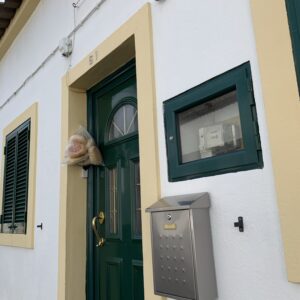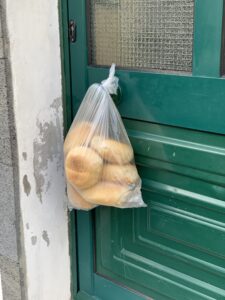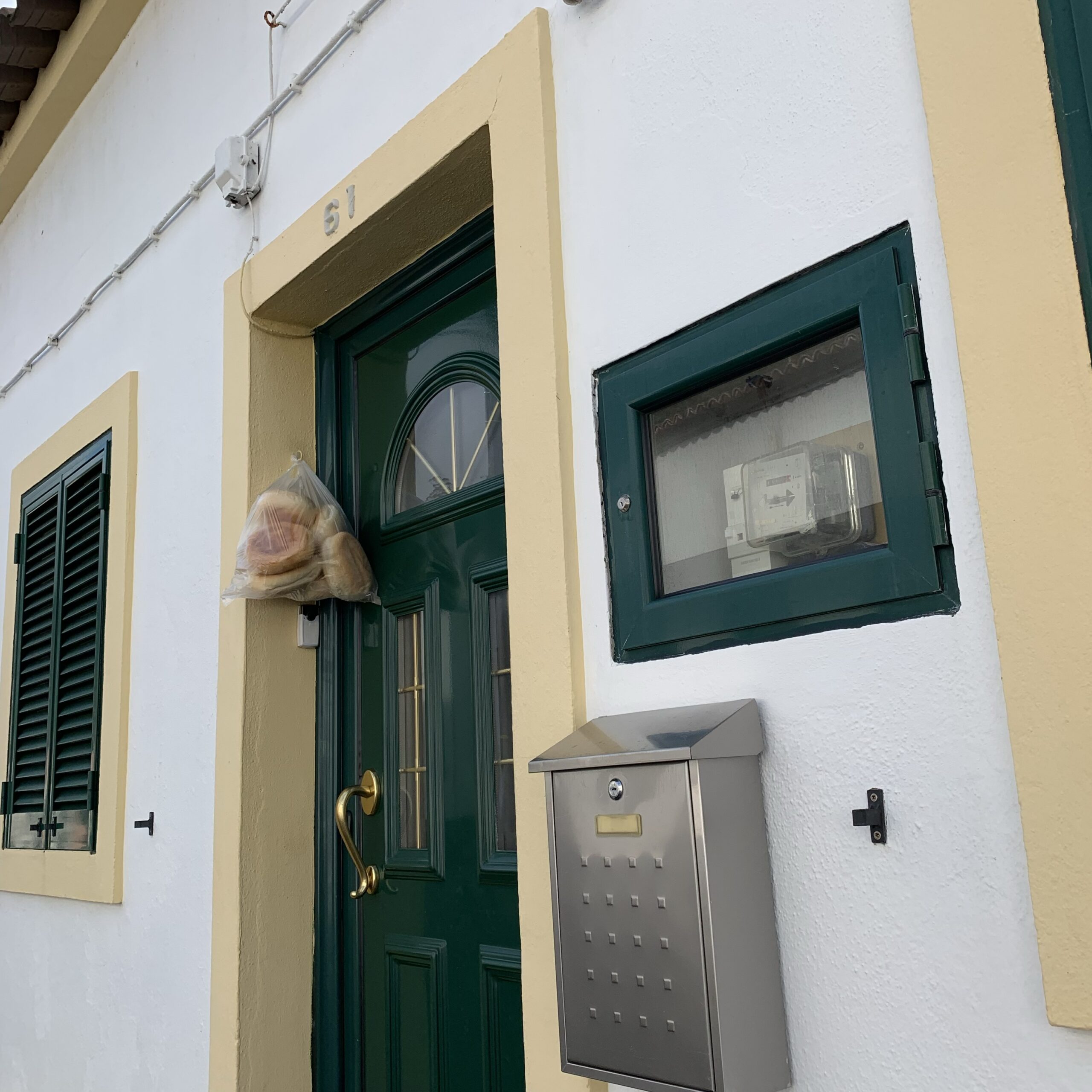

Lomba Das Barracas, Furnas, São Miguel Island, Azores, Portugal
This morning, from our bed, Luke and I listened again for the ice-cream truck melody of the Portuguese bread truck. Not that we needed bread, because we’d bought a week’s worth the day before at our tiny grocery store that is also a bar and is also a café, but because it came through yesterday and we wanted to see the operation in action—did people run out after the truck, and buy loaves off the back? Or was it a pre-pay or on-tab on-order delivery? Apparently, in the tiny Azorean village of Furnas, the fresh food comes to you. Just last night, a fruit truck rumbled through the neighborhood, broadcasting a tuneless tune from its loudspeaker to alert neighbors of the fresh produce for sale—heads of cauliflower, potatoes, peaches, leeks, and tomatoes—right off the truck. The bread truck, we reasoned, might do the same.
But then, we realized it is Sunday in a Catholic country, and so the chance of a bread delivery truck coming through town on the Lord’s day was zero. And, we believed, with some concern, that the grocery bar café where we got our morning caffe com leite would also be closed. We were wrong on both counts. On our walk to the grocery bar café, we saw them: bolls of bagged bread hanging from doors, different doors than the ones from yesterday.

“So he has come,” we said, disappointed that we’d missed the bread truck, and were tempted, as we were yesterday, to steal bread we did not need. The cluster of old men up ahead at a crossing close to the sulfur bath entrance confirmed the grocery bar café was indeed open, and when we entered, a good six people were waiting for their morning espresso (one lady sipped a large and fancy cappuccino, a non-Italian’s idea of a cappuccino, a belabored frilly thing served in a parfait cup). The server darted between her duties at the grocery line (a separate register) and the café bar, and we mused at the family who left with one of the mini hand-pulled shopping carts (“will they return with it?” They did.), and waited until nearly everyone had cleared out to order our caffe com leite.
We’d just about finished our caffe when the clerk put on some music that we recognized as a Europop version of “Patience” by Guns N’ Roses, the woman’s Sade-like voice crooning out the lonesome lyrics over the rhythmic bossa nova drum machine pattern. We sang along—we knew this song by heart, could play it on the guitar if we had one, could add the harmonies (and did) as we sipped the last of our caffe. We complimented the clerk on her coffee-making skills and left, wondering how the last part of the song would unfold, after the song hushes for a split second and Axel kicks in with “I been walkin the streets at night…”
“Let’s go back and see how it ends,” we said, and turned heel. Back in the store, we explained to the clerk, in English, “We are musicians, and we play this song. We love this song.” She showed us the YouTube link to the performer, “Vintage Bossa Cafe,” and we hovered near the speakers, trying not to be underfoot at the cash register. The song kicked up a half step flourish at the end, but faded out instead of shifting to those last, and we would argue, song-making, lines.
We thanked her, ferreting from her a real smile from her busy day, and walked toward home, singing the part that Vintage Bossa Nova did not. As we crossed a small bridge, a large white van with duct tape on its side mirror swerved and sped past us, inching toward us a little closer and a little faster than necessary. After he passed us, he stopped. We paused and looked back as the man got out of the van, a bag of bread in hand, and hung it from a hook on one of the cottage doors. The bread man! But there was no music-truck music. He did not broadcast his presence. There was one more customer in that row of homes, and he opened his sliding door to fill the order just as a second truck trundled down the narrow street. The driver halted, idled his vehicle, and waited, with a little patience, as we did, for the completion of the bread man’s delivery.
Erica Plouffe Lazure is the author of two flash fiction chapbooks, Sugar Mountain (2020, Ad Hoc Press) and Heard Around Town (2015, Arcadia). Her short fiction has appeared in McSweeney’s Quarterly Concern, Carve, Phoebe, and elsewhere and she can be found at www.ericaplouffelazure.com.




